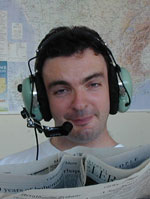L'expression de Hitchens, la «dictature du chagrin», c'est exactement ça. On dit aussi, en français, la dictature de l'émotion. On voudrait réduire au silence ceux qui posent des questions, dérangeantes pour le politiquement correct, au nom du chagrin et du «il y a un temps pour tout».
Sauf que nous connaissons tous le temps médiatique et nous savons bien que si nous n'en parlons pas maintenant, nous n'en parlerons jamais, en tout cas, pas avec la même audience, ce qui est bien sûr le but de la manoeuvre.
Si on ne peut pas poser de questions maintenant, quand pourra-t-on ? Jamais.
La dictature du chagrin est une branche du grand chantage sentimental et victimaire auquel nous sommes soumis en permanence.
Rappelons avec Hitchens que si la politique du FN qu'ils combattaient était appliquée depuis trente ans, les journalistes de Charlie Hebdo seraient probablement encore en vie (tout simplement parce que les immigrés étant beaucoup moins nombreux, les terroristes seraient aussi moins nombreux et plus faciles à surveiller).
The sinister, screeching mob who want to kill free speech (And no, I DON'T mean the Islamist terrorists in our midst)
***********
Once again we are ruled by a Dictatorship of Grief.
Ever since the death of Princess Diana, we have been subject to these periodic spasms when everyone is supposed to think and say the same thing, or else.
We were told on Friday that ‘politicians from all sides’ had lined up to attack Ukip’s Nigel Farage for supposedly ‘exploiting’ the Paris massacre.
Mr Farage had (quite reasonably) pointed out that the presence of Islamist fanatics in our midst might have something to do with, a) uncontrolled mass migration from the Muslim world, and b) decades of multicultural refusal to integrate them into our laws and customs.
Rather than disputing this with facts and logic (admittedly this would be hard), the three ‘mainstream’ parties joined in screeching condemnation.
The Prime Minister, whose government was busy exploiting the tragedy to shore up the (already vast) snooping powers of the State, said it was not the day to make political arguments.
Why ever not? What could be more political than discussing how to defend ourselves against this sort of crime? If it is not political, then why is he talking about it at all, instead of leaving the matter to the Archbishop of Canterbury?
[…]
As for freedom, here’s an interesting thing. The French Leftist newspaper Liberation reported on September 12, 1996, that three stalwarts of Charlie Hebdo (including Stephane ‘Charb’ Charbonnier) had campaigned in their magazine to collect more than 170,000 signatures for a petition calling for a ban on the French National Front party. They did this in the name of the ‘Rights of Man’.
You, like me, may dislike the National Front greatly. But lovers of liberty simply do not seek to ban parties they do not like.
This is a double paradox. The French National Front exists mainly because a perfectly reasonable concern about mass immigration was sneeringly dismissed by the mainstream French parties. Something similar is happening in Germany, where large demonstrations against ‘the Islamisation of the West’ in many cities have been scornfully attacked by that country’s elite.
If reasonable calls for restrictions on immigration had been heeded when they were first made, right across Europe, would we now be in the mess we are in? If it is officially regarded as irresponsible, or ‘exploitation’, or ‘sickening’, or ‘divisive’ to say this, then we do not live in freedom, and those who claim to speak in its name are not telling the truth.
***********
Inscription à :
Publier les commentaires (Atom)

Aucun commentaire:
Enregistrer un commentaire